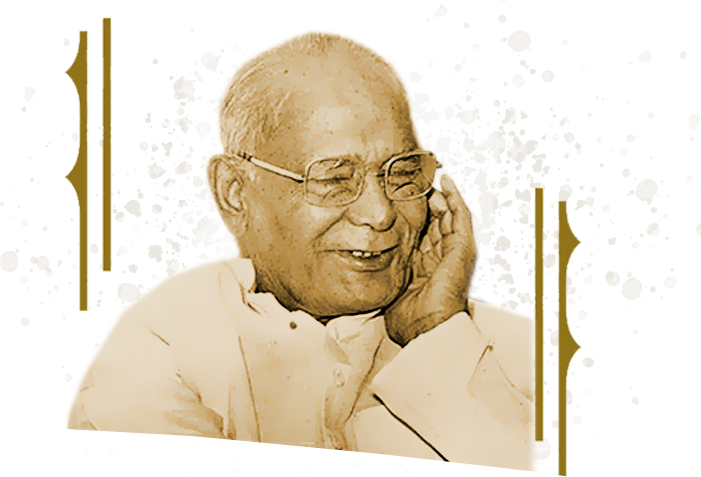1974 - 1977 Total Revolution & Emergency
JP never believed in preaching and maintaining a distance to the grief of the people. Time and again he plunged into the relief missions of flood, famine and war to ease the lives of millions. Because of his reputation and integrity he attracted volunteers and donations from all over the world. Despite the unachievable goals in a lifetime, he worked on trivia and built the base for a revolution. All his life he worked on dual strategy. On one hand he aimed at defending the maximum liberty and freedom that the constitution and parliamentary process provided, so that authoritarianism or chaos does not overtake the country while he is still working on the Gandhian decentralised structure of decentralised Gramraj. On the other he took forward the philosophy developed by Gnadhi and then Vinoba by aiming to secure maximum decentralisation of power and building up grass root organisations that would utilise the power for their own development, independent of party pressures. He was aiming to create a structure of party less democracy that moved from bottom to up. On 9th December 1973 he wrote an open letter Youth for Democracy. JP asked: “Will our youth continue to look on idly at this strangulation of the democratic process at its very birth? Surely there cannot be more important issue which should move the youth to action.... What form their action should take is for the youth themselves to decide. My only recommendation would be that in keeping with the spirit and substance of democracy, it must be scrupulously peaceful and non-partisan.”
JP’s appeal was answered sooner than expected. In January 1974, a revolt by students over excessive bills in hostels at Ahmadabad and Morvi snowballed into the general campaign against the scarcity and rising prices of food and other essential goods. And this in turn widened into the people’s movement against corruption. JP visited Gujarat at the invitation of the students of Navnirman movement of Gujarat. Simultaneously movement also began in Bihar. They demonstrated on 18th March 1974 demanding university reform as well as against corruption, price rise and unemployment. Students approached JP on 19th March for his help and guidance. He agreed to guide them on two conditions: one that they should be peaceful and two that if they belonged to any political party, they should give the movement priority over their respective parties. Thus began the unique association between a leader in his seventies and his followers in their teens which rocked the country.
Central and state Congress government of the day launched an attack on JP’s character by calling him corrupt, traitor, a fascist and a believer in violence. JP responded by on 9th April 1974 by leading a ten kilometre “Silent Rally” of Gandhian Peace Workers on a jeep against the police cruelties. With their mouth closed by a band and hands tied behind the back they carried the play cards that said “We will not hit back come what may”. At the Gandhi Maidan of Patna he declared, “I will not any more remain silent spectator of the suffering of the masses.” Day –to-day programmes, meeting and demonstration engulfed the whole nation. On June 5th 1974 after delivering a truck load of petition to the governor, on return the people were fired upon, and 21 demonstrators were injured. The crowd that was on the verge of turning berserk thirsty for revenge was persuaded to listen to JP. And he declared: “Friends, this is a revolution, a total revolution. This is not a mere movement to dissolve the assembly. We have to go far, very far....”
Bihar Action Committee conferred on him the title Lok Nayak. His speech signalled the next phase of his vision. Every aspect of human life cultural, social, educational, philosophical, economical, ethical, as well as political, must be changed to achieve a lasting just and equal society. The establishment based on violence, lies and corruption, must be overthrown by a peaceful people in a non-violent mass action and new organs of people’s power created.
New systems involved emergence of people’s government at grass root level. This in turn would take care of the local issues and create opportunities at local levels. Take care of social reforms. The revolution would work towards the upliftment of the weakest in the society. Achievement of the goal of the revolution was continuous and hence non-violent in nature. To conservatives it seemed like an outrageous notion as it required integrating village councils into national framework and of dividing huge cities into administrative units. But JP had been certain of Marxism, certain of Bhoodan and he was certain of Total Revolution.


